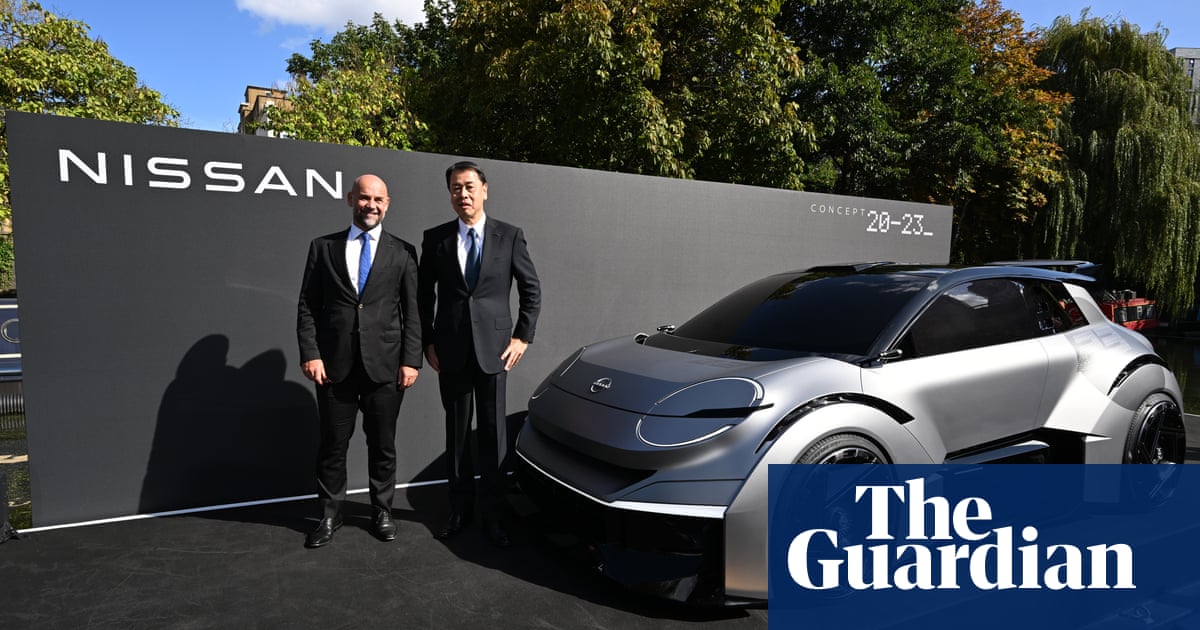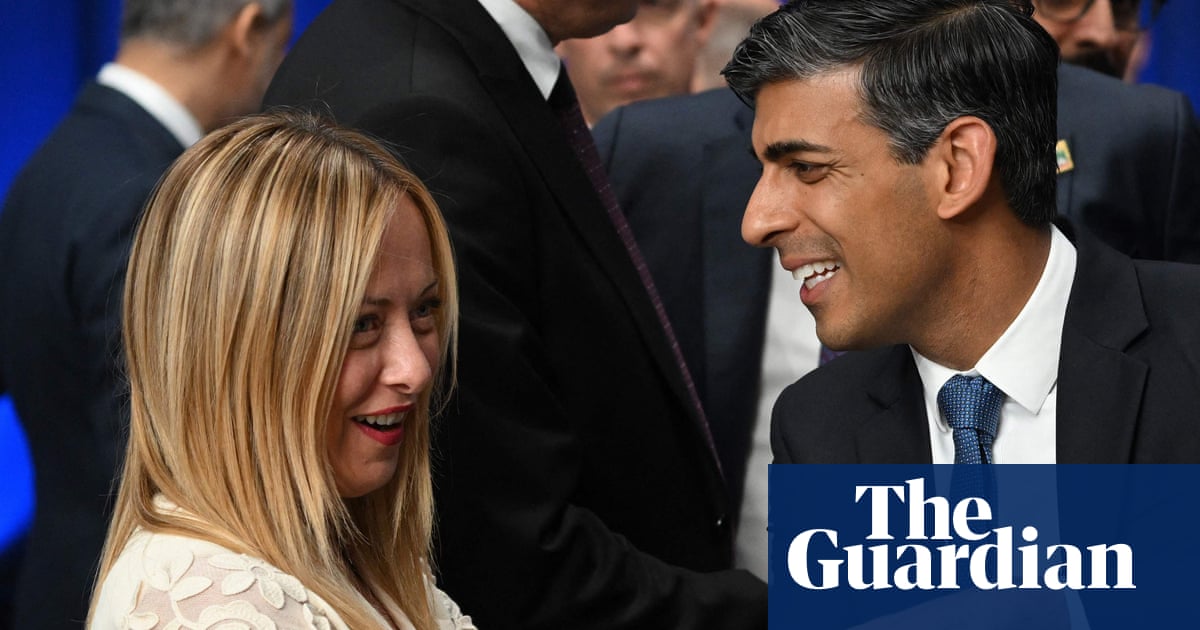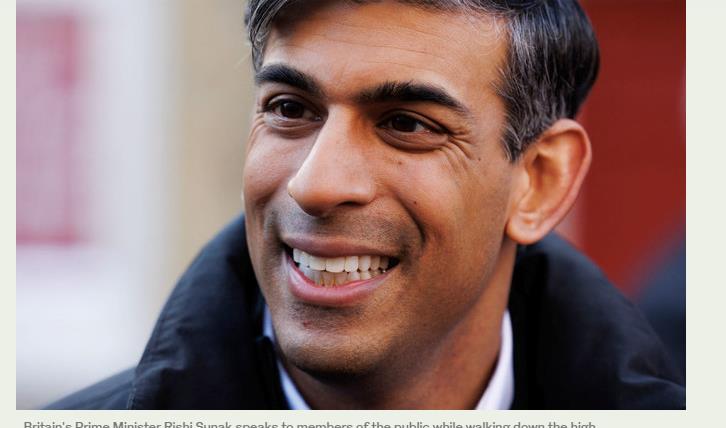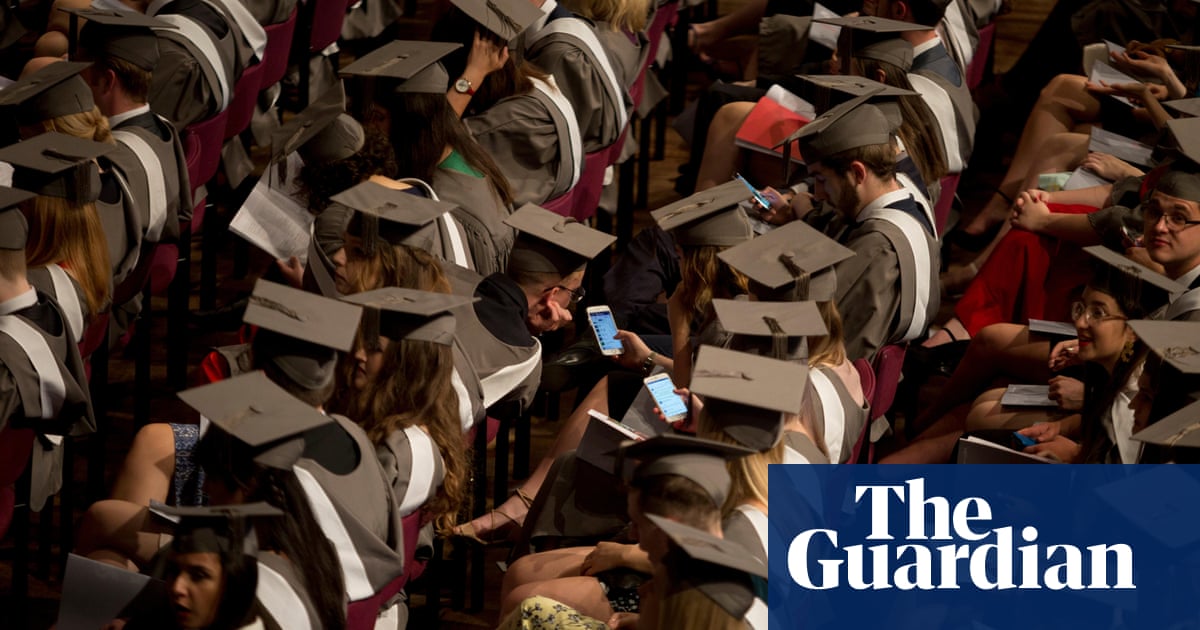
Rishi Sunak has restated his promise to cut overall migration to the UK, but suggested he would delay a cap on refugee numbers that was promised in his leadership campaign.
Sunak also said he was fundamentally against any moves towards using ID cards to stop people working illegally in the UK, after Labour revived the prospect.
Sunak’s pledge to pursue lower migration comes despite growing numbers of people crossing the Channel and pressure for a trade deal with India to include an increase in the number of visas granted.
The prime minister was noncommittal on the refugee cap, but said it would be time to “have a conversation” about refugee numbers once there was progress made on small boats.
On Monday, Sunak announced a €72m (£63m) deal with France to conduct joint patrols across the Channel for the first time as well as increasing joint efforts by 40%.
The prime minister said that he believed reducing illegal migration was voters’ “absolute priority” and that would remain his focus, rather than cracking down on work permits or student numbers.
But despite the extraordinary recruitment challenges faced by many British sectors including manufacturing, care and hospitality, Sunak said he would still like overall numbers to go down, and said he was committed to the promise in his summer leadership campaign to put a cap on the number of refugees the UK would accept.
In practice, this could mean a law change that results in the removal of refugees to dangerous countries where they may be at risk once the cap is reached.
Speaking at the G20 summit in Bali, Sunak said he would take steps to address that issue only once progress had been made in addressing arrivals in the UK without legal permits. “I think the first thing to do is to make sure that we can stop numbers of people coming here illegally,” he said.
“Having a conversation like that can only happen after we’ve taken all the necessary steps to have proper control of our borders, so that there aren’t large numbers of people coming here illegally. And that is the priority, that’s the focus.”
But he said he would still like a cap to be placed on the number of refugees that the UK takes from third countries. “Once we’ve done that, then obviously we can have a conversation about what is the right amount of people that we can safely and sustainably give refuge and sanctuary to,” he said.
“Now that’s something that we’ve always done. It’s something that we should all be very proud of. And we’ve seen it recently with Ukraine and Syria, with Afghanistan, with Hong Kong,” Sunak said, referring to the schemes that allowed sponsorship of specific nationalities fleeing war and persecution.
However, the prime minister said he remained unconvinced by the use of ID cards. The issue has been revived by the shadow immigration minister, Labour’s Stephen Kinnock, who said it would help to “reassure the public we are in control of our borders”, though the shadow home secretary, Yvette Cooper, distanced herself from the proposals.
Sunak said he was opposed on ideological and practical terms. “I don’t think that is the right way to solve this problem,” he said, saying the current e-visa system acted as “a form of digital identity that can be checked by those who need to check it … I think about 98% of all people have some form of photographic identification already in the UK.”
He added: “I also think we have a long debate in this country on the civil liberties aspect of ID cards, which is why I think the Labour party probably themselves, in the course of 24 hours, changed their mind on it.
“We have these other ways to check the identity of people who we are keen to check, without needing to resort to ID cards, and we’ve tightened up penalties on the enforcement side.”
Sunak said the new deal with the French to prevent small boat crossings would mean the UK could start thinking more widely about its future approach to migration – but said ultimately the goal was to reduce numbers.
“I do want to get migration down over time,” he said. “But I think the most pressing priority we have, and the British people have, is getting a grip of illegal migration and small boats. And that’s what I’m spending most of my time on.”
The 2019 Conservative manifesto promised to reduce migration “overall” without making any specific commitment to a timeframe. The home secretary, Suella Braverman, had rowed with Sunak’s predecessor, Liz Truss, over plans to significantly relax work permits in various sectors as a way to fuel economic growth.
Enver Solomon, the chief executive of the Refugee Council, said: “It is vital that the government remains committed to the principles behind the UN convention, of which the UK was a founding signatory, and ensures any person seeking asylum in the UK is given a fair hearing on UK soil.
“Three-quarters of those who arrive and apply for asylum are granted refugee protection, which shows that the men, women and children coming across the Channel are not all economic migrants, but have fled war and violence.
“Rather than setting a quota for people seeking refugee protection, the government must work with other nations to share responsibility for what is a global challenge. This should include an ambitious target to expand safe routes such as family reunion and UN resettlement programmes so that people don’t have to take dangerous journeys to reach the UK.”












